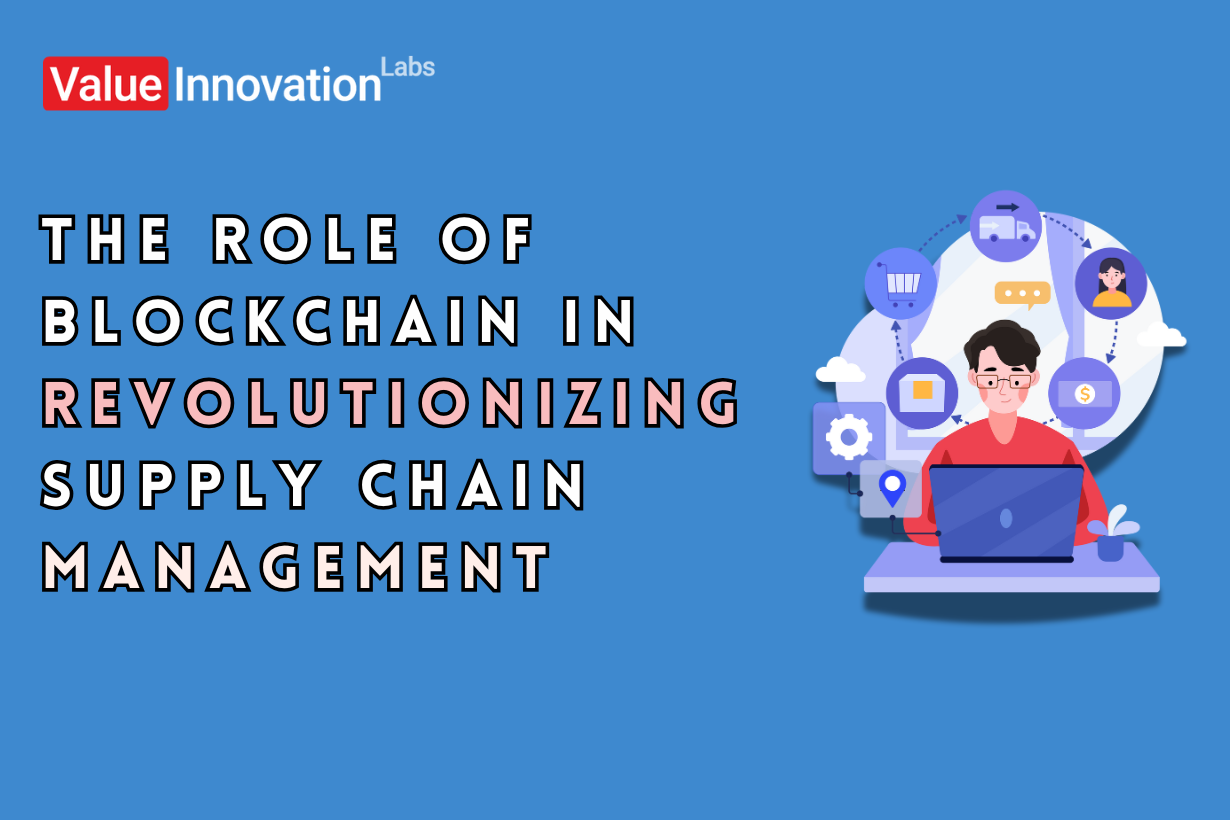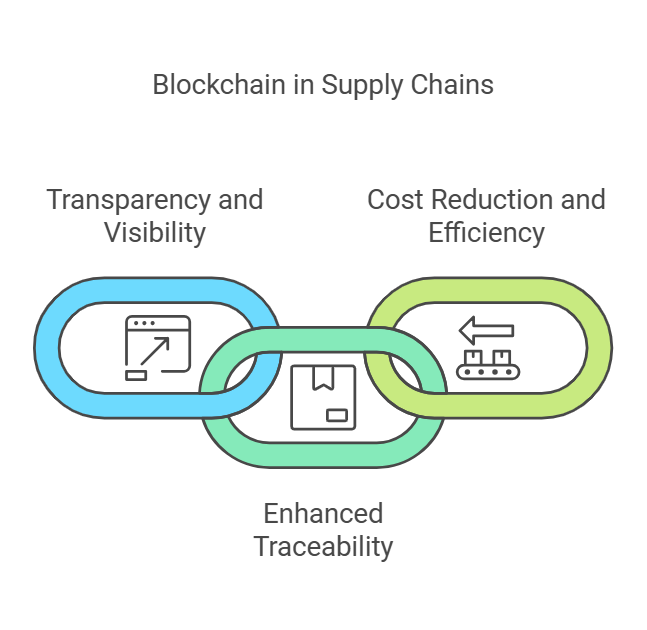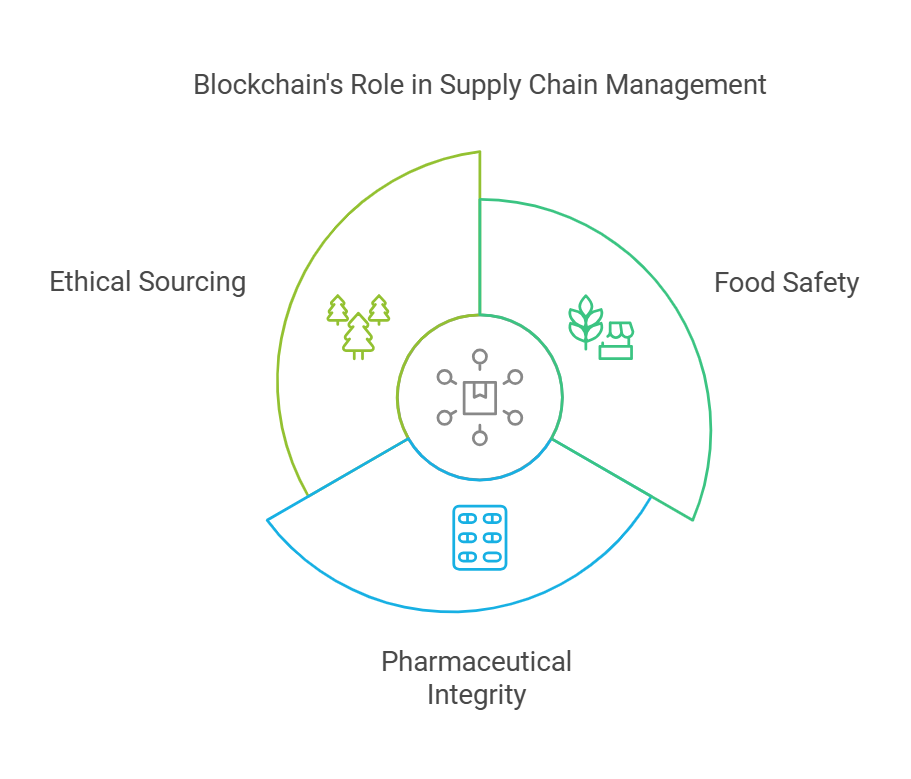
The Role of Blockchain In Revolutionizing Supply Chain Management
- by mayank.thapa
Supply chain management is the life wire of international business as it facilitates the flow of products from producers to final consumers. However, traditional supply chains may present some difficulties, such as low efficiency, opaqueness, and fraud. Welcome blockchain technology in supply chain management which is now a revolutionary tool that is changing the face of business by offering the best solution to increased supply chain risk through increased traceability, security, and efficiency. In this article, we are going to uncover how blockchain is revolutionizing supply chain innovation management and outlining incongruity solutions for profound quandaries.
Understanding Blockchain Technology in Supply Chain Management
Blockchain is an open-source distributed register that keeps records of the transactions and these are quite permanent and very smooth. When implemented in supply chains, it helps firms cope with problems like isolated data, fake products, and extensive documentation.
Key benefits of blockchain technology in supply chain management include:
– Enhanced Transparency: This includes the same data that is available to all the stakeholders, thus eliminating the possibility of disagreements and disputes.
– Improved Traceability: Blockchain helps track products in real-time, so it is challenging to let someone else take the blame.
– Streamlined Processes: Smart contracts eliminate areas of possible human mistakes and typically do not take time to complete a task.
With the adoption of blockchain in operations, companies are building supply chain innovations by ensuring that conventional supply chain procedures are taken to the next level, with the help of technology.
Key Features of Blockchain in Supply Chains

1. Transparency and Visibility
Blockchain creates an environment where participants in the supply chain have a definitive record of the status of the supply chain. Manufacturers, suppliers, distributors, and customers can all share actual time data. For instance, a retailer can confirm that the raw material used in their products was obtained more ethically. This kind of transparency not only strengthens consumers’ confidence but also directs blockchain supply chain developments.
2. Enhanced Traceability
These industries such as foods and beverages, drugs and medicine, and anything that is associated with high-priced quality accessories require end-to-end tracing and authentication of consignments. Blockchain makes sure that all activities are well recorded in order that firms can track their products’ origins. This capability minimizes counterfeit risks and ensures compliance with regulatory standards.
3. Cost Reduction and Efficiency
Blockchain eradicates the need for middlemen, and eradicating paperwork and manual procedures also brings about a major reduction in costs. A smart contract is an electronic contract running on a blockchain that actualizes its terms via computer-programmed code to guarantee work efficiency and effectiveness. That is how a company creates supply chain innovation through managing unnecessary inefficiencies.
Use Cases of Blockchain in Supply Chain Management

1. Food Safety
In the food industry, quality and especially freshness and safety of products play a critical role. Blockchain allows one to track the flow of any food product from the farm through restaurants and other outlets. Several organisations such as Walmart and Nestle have adopted blockchain supply chains to improve safety and food wastage.
2. Pharmaceutical Integrity
Industry challenges include fake drugs and complicated delivery systems among other ones impacting the pharmaceutical industry. Blockchain is used to authenticate the medicines and to ensure the delivery of genuine and safe medicines. Overall, this use case singularly demonstrates a plethora of benefits of blockchain supply chain management in maintaining public health.
3. Ethical Sourcing
Businesses and their products like fashion or electronics are usually confronted with ethical problems in sourcing. Blockchain enhances equal visibility of labor practices and material origins that assist organizations in sustaining goals on sustainability. This application is a perfect example of supply chain innovation management with a promise to practice ethical and environmentally conscious business.
Challenges in Adopting Blockchain in Supply Chain
While the benefits are immense, implementing blockchain technology in supply chain management comes with its challenges:
– Scalability Issues: Data compares can be large in the case of Blockchains and this can put a lot of pressure on resources.
– High Initial Costs: Exploring the four ways to set up a blockchain infrastructure calls for extensive investment.
– Integration Complexities: Blockchain cannot function independently from the existing supply chain systems and has to integrate coherently with them.
To overcome these challenges, the supply chain stakeholders need to come together and engage support from the technology partners with expertise in blockchain Supply Chain solutions.
Future of Blockchain in Supply Chains
The following are some key findings on the future application of Blockchain supply chain management. As technology advances, we can expect:
– Increased Adoption: Increased use of blockchain will be evident in industries to account for the transparency and security that it offers.
– AI Integration: Integrating blockchain with artificial intelligence will create predictive analysis and sound decision-making.
– Decentralized Marketplaces: Blockchain will help decentralized platforms through which direct transactions between buyers and sellers will take place.
These trends are indicative of a paradigm shift and have placed supply chain innovation at the center of the current and emerging commerce era.
Conclusion
The use of smart contracts based on the blockchain in today’s supply chain market advances conventional supply chain arrangements based on papers and contracts into effective and secure supply chain systems. Blockchain is already solving some of the key concerns around supply chain management including better traceability, transparency, and allowing for ethical business practices and cutting total costs. Supply chain innovation has been widely adopted by organizations and out of all these trends, blockchain simply emerges as the decisive answer for the future success of organizations.
More information on other technologies such as blockchain can be found at valueinnovationlabs.com.
Frequently Asked Questions
- What is blockchain technology in supply chain management?
Answer- Blockchain is an egalitarian distributed ledger system praised for the light it has shed on the supply chain and its efficiency.
- How does blockchain supply chain technology improve transparency?
Answer- The real-time and permanent record of transactions allows stakeholders to access and reflect on it in real-time across the supply chain.
- What industries benefit most from blockchain technology in supply chains?
Answer- Business sectors such as food, pharma, fashion, and electronics will benefit from the efficiency of product traceability and more ethical supply chain management.
Supply chain management is the life wire of international business as it facilitates the flow of products from producers to…
